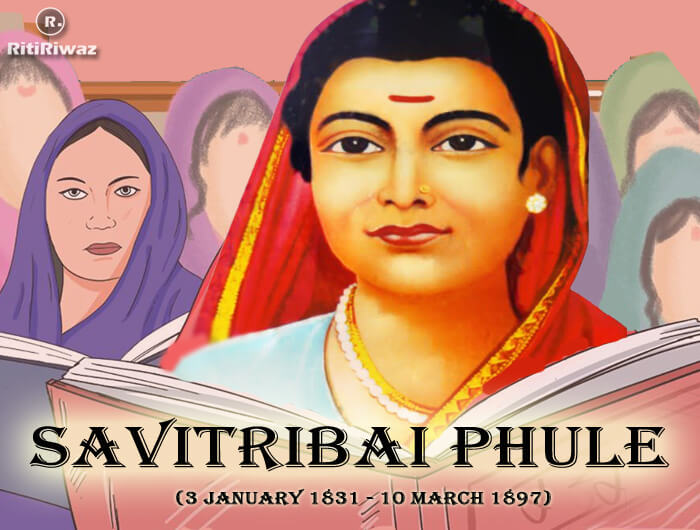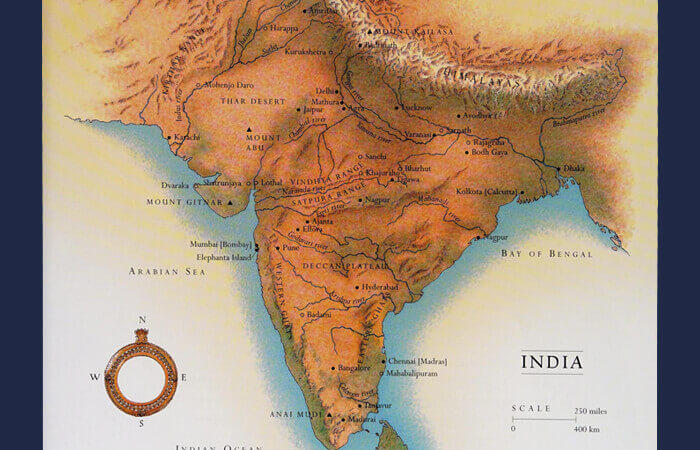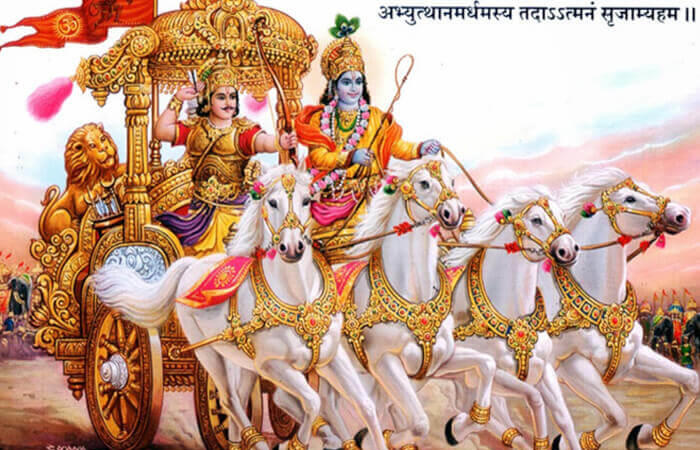Savitribai Phule – The First Female Teacher of India

Savitribai Phule was a social reformer, educationalist, and poet from Maharashtra. She has made exceptional contributions to educating women and uplifting lower-caste people during the British era. Phule was the first female teacher in the country and is regarded as the mother of Indian feminism.
She worked in various social activities like the emancipation and education of women, and the eradication of gender bias and untouchability. She also worked toward female infanticide and fought against child marriage. She objected to the practice of “sati-pratha”.
Indian women owe her. For in today’s world, whether an Indian school girl reading English, an Indian woman who reads, an Indian woman who is educated, or an educated international desi woman, her education as an Indian female grows from the garden planted by Savitribai Phule.
Fast Facts
- Full Name: Savitribai Phule
- Birth: January 3, 1831
- Birth Place: Nyagaon village, Satara district of Maharashtra
- Death: 10 March 1897
- Father: Khandoji Nevase Patil
- Mother: Lakshmi bai
- Husband: Jyotirao Govindrao Phule
- Adopted Son: Yashwantrao
- Popular for: First female teacher, Marathi poetess, Social reformer
Early Life
Savitribai Phule was born on January 3, 1831, at Nyagaon village in Satara district of Maharashtra into an ordinary peasant family. But her family had ties with the Telangana region. They had relatives in Bodhan of Nizamabad district and some parts of Adilabad district. Born in a Dalit family in Pune, Maharashtra, Savitribai’s father’s name was Khandoji Nevase Patil and his mother’s name was Lakshmibai. She had three siblings.
In 1840, at the age of 9, Savitribai was married to 13-year-old Jyotirao Phule. Savitribai and Jyotirao had no children of their own. It is said that they adopted Yashawantrao, a son born to a Brahmin widow. At that time she was completely illiterate and her husband had studied only till the third standard. Savitribai had seen the dream of studying, and even after marriage, she did not let that stop her. How difficult their struggle was, can be understood from an anecdote of their life.
Career
One day she was turning the pages of an English book in the room, which caught the eye of her father Khandoji. Seeing this, he got angry and snatched the book from his hands and threw it outside the house. He said that only upper caste men have the right to education. It is a sin for Dalits and women to get an education.
This was the moment when Savitribai took a vow that she would learn to read one day or the other. His hard work paid off. He not only learned to read, but did not know how many girls were educated in their future, but this journey was not easy.
Jyotirao later became an avid social activist and anti-caste social reformer. Jyotirao educated Savitribai and Sagunabai Shirsagar, his cousin’s sister at their home along with working at their farm. He taught Savitribai, making her one of the few literate women of her time in India. She created history with her husband and became an inspiration to millions of girls. After completing her teacher’s education, Savitribai Phule started teaching girls at the Maharwada in Pune.
When a teacher could not be found to teach the girls, Savitribai herself took the initiative and started teaching in and managing the school. They faced a lot of obstacles in their work from the start but Jyotiba and Savitribai did not waver and went on to open many more girl schools. It is said that when Savitribai went to teach girls, people used to throw dirt, mud, cow dung, and along the way. She had to carry a spare sari in her bag and after reaching school she used to change the dirty sari.
As a result of her experience and work, she became an ardent feminist. She established the Mahila Seva Mandal to raise awareness for issues concerning women’s rights and called for a gathering place free of caste discrimination or differentiation of any kind. She also campaigned against child marriage and was an advocate of widow remarriage.
Jyotirao and Savitribai Phule along with Fatima Sheikh took charge of spreading education among the downtrodden communities. Fatima Sheikh was the sister of Mian Usman Sheikh, in whose house Jyotiba and Savitribai Phule took up residence. Fatima Sheikh is the first Muslim women teacher in modern India.
In the 1850s, Savitribai and Jyotirao Phule established two educational trusts. They were entitled: the Native Female School, Pune, and the Society for Promoting the Education of Mahars, Mangs, and Etceteras. These two trusts ended up encompassing many schools which were led by Savitribai Phule and later, Fatima Sheikh.
Phule is the founder of India’s first school for girls called Bhide Wada in Pune in 1948. Her poems like “Kavya Phule” and “Bavan Kashi Subodh Ratnakar” were published in 1934 and 1982 respectively. She advocated and spread values such as humanism, liberty, equality, brotherhood, and the importance of education in society.
Her husband, Jotirao founded the social reform society named the ‘Satyashodhak Samaj’ in Pune on September 24, 1873. Later on, Savitribai became the Society of Women’s Section head. After the death of Jyotirao Phule, Savitribai became the chairperson of Satyashodak Samaj in 1890.
Death
Yashwantrao Phule, the adopted son of Savitribai Phule and Jyotirao Phule was a doctor who opened up a clinic to care for patients affected by the third pandemic of bubonic plague, that raged for a hundred years. Savitribai was personally taking people to the clinic and caring for them. She died on 10 March 1897 because of the plague while treating a patient, and her works continue to inspire many to date.
Suggested Read: Chhatrapati Shivaji Maharaj






